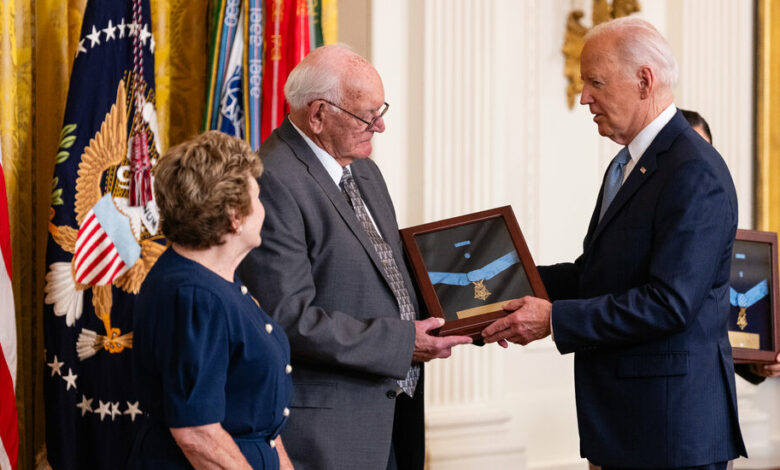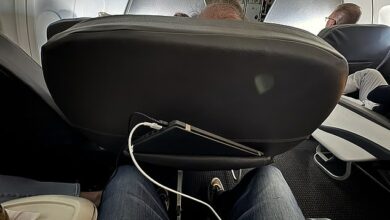162 Years Later, Two Civil War Train Robbers Receive a Medal of Honor

The plan was audacious, but ultimately it failed.
In the spring of 1862, a small group of Union saboteurs came up with the audacious idea of cutting the Confederate supply lines at Chattanooga by stealing a train, tearing up railroad tracks, burning bridges, and cutting telegraph wires. This would deny enemy troops in the area access to transportation and communications.
Dressed in civilian clothes, they began their mission in April, sneaking behind enemy lines in Georgia, commandeering a locomotive near Marietta and wreaking havoc along miles of track for seven hours in an effort to push the battle deep into Tennessee.
But the stolen train, dubbed “the General,” ran out of fuel 18 miles from Chattanooga, a US Army Account of the robbery, which became known as the great locomotive chaseThe Union soldiers and civilians who participated in the mission fled, but were all captured less than two weeks after being on the run.
Most were sent to POW camps. The rest were hanged as spies.
In 1863, six survivors of the attack became the first American soldiers to receive the Medal of Honor, the highest American award for valor in combat, which had been authorized by President Abraham Lincoln the year before.
In all, 19 men received the Medal of Honor in the years that followed. But two soldiers who were executed by Confederates shortly after the mission were never recognized.
Those two men, Private Philip G. Shadrach And Private George D. Wilson of the 2nd Ohio Volunteer Infantry, finally received the honor posthumously on Wednesday afternoon, 162 years after their service in Atlanta was cut short by the noose.
During a ceremony at the White House, President Biden presented the medals to their relatives, some of whom did not know what their ancestors had done until historians contacted them.
“I only discovered this man four years ago — his history has been lost to us until now, so it’s pretty amazing to discover what he and the other 21 men did,” Scott Chandler, the great-great-grandson of Private Wilson, told reporters Tuesday. “We can’t take credit for his actions, but we can honor him and be his voice into the future.”
In his speech before presenting the medals, Biden connected the sacrifices of soldiers Shadrach and Wilson to the ideals of the country’s founding, and echoed sentiments familiar from his campaign speeches.
“Their heroics went unnoticed for more than a century, but time has not erased their courage,” Biden said. “And what they fought for was as precious today as it is today: unity over division, freedom over submission, progress over retreat, truth over lies.”
“Tomorrow is the Fourth of July, another reminder of why it is so important to know our history, not erase it,” Biden said. “To remember the sacred cause of American democracy, not to invent a lost cause to justify the evil of slavery. To remember the nation that George and Philip fought and died for: the United States of America.”
“That’s who we are,” he added.




